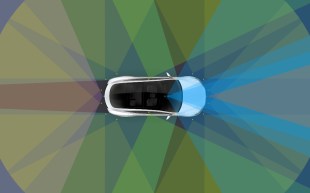Drivers in Japan face dementia tests to cut road deaths
Elderly motorists who jump a red light or drive on the wrong side of the road must have a medical check
JAPAN has introduced traffic rules to stop people with dementia driving, after a series of deaths caused by confused elderly motorists.
The revised road laws require drivers of 75 or above to be tested for signs of senility if they jump a red light or drive on the wrong side of the road, among other errors. Those who fail the test will have to undergo medical checks to confirm that they are mentally fit enough to drive.
Police expect to examine 50,000 drivers and to revoke 15,000 licences, compared with 1,844 last year.
Browse NEW or USED cars for sale
Japan’s prime minister, Shinzo Abe, called an emergency meeting in November after a six-year-old boy died and 11 other people were injured when a mini-van driven by an 87-year-old man ploughed into children walking to school in Yokohama. The man had been driving around aimlessly for 24 hours and told police that he was lost and could not remember what had happened.
A week later a motorist in his eighties killed a woman when he drove into a bus stop in Shimotsuke, and another crashed into the shopfront of a Tokyo convenience store.
The same month a married couple died when an 83-year-old woman hit them in Tokyo. She explained that she had pressed the accelerator believing it to be the brake.
According to the country’s National Police Agency there are 4.8m licence holders above the age of 75. They are two-and-a-half times more likely to cause a fatal accident than younger drivers, being responsible for one out of every eight fatal accidents, a total of 458 in 2015.
A quarter of Japanese are over 65 and an estimated 15% of them suffer from some kind of dementia. The country’s birth rate is in long-term decline and at this rate by 2060 the proportion of elderly Japanese is expected to rise to 40%.
Richard Lloyd Parry, Tokyo
This article first appeared in The Times





